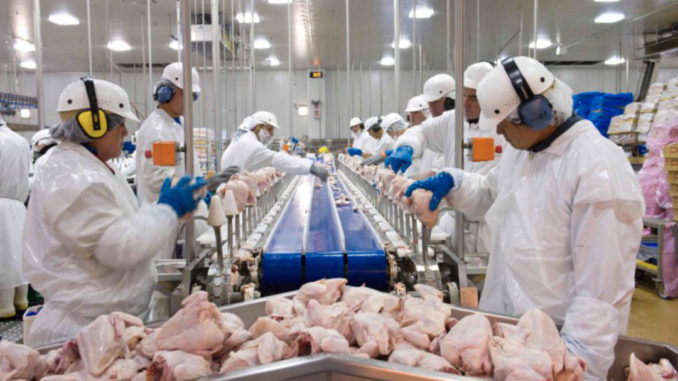

“Simply put, corporates never had it so good. From groceries to pharmaceuticals, from coffee to consumer products to fuel, so much so that even Netflix and Amazon Prime have increased subscription despite logging a huge increase in net profits and paying the lowest tax. When it comes to fuel, all major oil companies – Exxon Mobil, British Petroleum, Shell, and Chevron – have recorded highest profits in past seven years, and still have expressed helplessness when it comes to high petrol and diesel prices consumers are being made to pay.” As retail inflation swings out of proportion, the world is witnessing a new phenomenon. In lot many ways, it was known to exist earlier, but not so starkly. As inflation rises, so does the profit of companies, this time recording a historic increase. While the company’s profits soar, the CEOs and other top executives walk away with hefty salary increases, stock buybacks, and rise in dividend payments.
Although the companies say there is nothing they can do, consumers are being told that “off the chart” inflation they are faced with is the outcome of higher wages, and a crazy rise in production costs. There is no denying that the pandemic had caused supply chain disruptions, but the high and steady rise in inflation the world encounters defies the simple logic of supply-demand distortions. It hides more than what it reveals.
In January, retail inflation in the US has hit the highest in 40 years, rising to a peak of 7.5 per cent. In the UK, inflation has already touched a 30-year-high at 5.4 per cent, and the Bank of England warns of inflation further rising to 7.1 per cent by April. As the retail inflation in India soars to 6.1 per cent, fears are already being expressed that imported inflation may drive the consumer prices high. “India does need to be wary of imported inflation, especially from elevated global energy prices,” Economic Survey 2022 had warned.
In the midst of rising inflation, a headline in international business newspaper The Financial Times (February 7) caught my attention: ‘Tyson Foods loves Inflation’. And left me wondering, whether the high inflation rate the world is witnessing is because of economic reasons beyond control or more so by simply repackaging and marketing corporate greed as inflation.
The more I researched, the more it became clear as to how greed is very conveniently being packaged as inflation. To understand, let’s first begin with Tyson Foods, one of the four livestock companies controlling 85 per cent of the US meat market, and whom US President Joe Biden had earlier accused of “pandemic profiteering”. Another explainer in Forbes pointed to how Tyson Foods is spending less to earn more. Even agreeing that the feed and shipping costs have risen, but the fact is that operating profit margins for Tyson Foods too has almost doubled since the pre-pandemic days.
While the profits of the four livestock companies jumped 300 per cent, the retail meat prices too recorded a steep hike, touching almost 20 per cent for beef. This is happening at a time when prices being paid to livestock farmers are the lowest in the past 50 years.
If you are a beer drinker, here is some bad news. The Guardian reports the sale of the popular Heineken beer brand in Europe to have increased by 4.3 per cent, recording 80 per cent jump in overall profits. With profits touching a record $2.26 billion in 2021, the company has announced that its beer prices will go up significantly in the months to come. This is despite already having raised the beer prices a couple of times during the two years of the pandemic. Meanwhile, another popular beer brand Cobra has also announced that consumers should be ready to shell out extra given the “vicious cycle” of increase in its production costs.
Now, let’s take the case of Starbucks. Surely, it’s more than just coffee, it’s also about the price you pay. While its profits increased by 31 per cent in the last quarter of 2021, it has also announced plans to further hike coffee prices. This is despite Starbucks turnover exceeding $8.1 billion in 2021. Interestingly, the compensation package of its CEO grew by 39 per cent, reaching a total of $20.4 million. While coffee bean growers are among the lowest paid, the rise in salary packets and bonuses for the top executives remains limitless. It’s like privatizing the profits andsocializing the costs.
Senator Bernie Sanders cites another example. In a tweet, he says: “Corporate greed is Chipotle increasing its profits by 181 per cent last year to $764 million, giving its CEO a 137 per cent pay raise to $38 million in 2020 and blaming the rising cost of a burrito on a minimum wage worker who got a 50 cent pay raise. That’s not inflation. That’s price gouging.” Chipotle is a restaurant chain.
In another tweet by Dan Price, the founder of the Seattle-based credit card processing company Gravity Payments, quoting a New York Times report, asks: “Why are groceries so expensive? Kroger (US-based retail company) profits are at record highs. Its stock is up 36 per cent in a year. Its CEO got a 45 per cent raise to $22 million and makes 909 times the median worker. 75 per cent of its workers are food insecure. 63 per cent can’t pay their bills. Many are on food stamps.” Simply put, corporates never had it so good. From groceries to pharmaceuticals, from coffee to consumer products to fuel, so much so that even Netflix and Amazon Prime have increased subscription despite logging a huge increase in net profits and paying the lowest tax. When it comes to fuel, all major oil companies — Exxon Mobil, British Petroleum, Shell, and Chevron — have recorded highest profits in past seven years, and still have expressed helplessness when it comes to high petrol and diesel prices consumers are being made to pay.
Surprisingly, despite increased production costs, reports say US corporate profits soared to a record $2.8 trillion in the second quarter of 2021. So did the corporate profits in India. But while the working class and the poor bear the brunt of increasing inflation, the top 1 per cent has gained. A whopping increase by
77 per cent in the sale of super yachts this year and an increase in chartered flights bear testimony to the trend. While a section of market economists will not like to draw any link between inflation and corporate greed, it shouldn’t surprise us anymore.
(The author is a Food & Agriculture specialist)





Be the first to comment